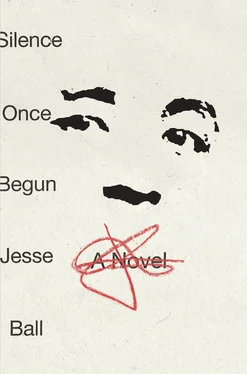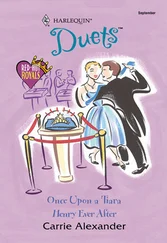INT.
I do, I appreciate that.
KO
There was just no way anyone could have known.
INT.
And the sentence — did Mr. Oda accept it in the same spirit that he accepted the rest?
KO
The sentence was, as you know, he would be hanged. He would go to a prison and wait for some time, and thereafter be hanged. Some had spoken of leniency in the case, based on his silence, his aberrant behavior. Perhaps he was mad? He did not appear mad to me, or to the judges. No one in the room thought he was mad. The work of the court is to give justice, it is the one measure of a society, when all other measures are abandoned. How do you give justice? Here we had twelve …
INT.
Eleven, I believe.
KO
Yes, yes, eleven victims. Who was to speak for them?
INT.
But the reading of the sentence. Did it affect him?
KO
Not noticeably. I believe he was aware that it would come. It was not a surprise to any of us.
INT.
I will read to you what you wrote on that occasion. You wrote, So ends the long, painful story of the Narito Disappearances. Sadly, we know as little at the end as we did at the beginning. We have found someone to blame for it, but are no better equipped to factually answer the question, where are our lost family members and why were they taken? These are secrets it seems that Oda Sotatsu will bear with him to the grave. May they give him no solace there .
(A minute’s pause.)
INT.
How does that sound to you now?
(Tape-device clicks off.)
[ Int. note . Here Ko Eiji chose to stop the interview.]
[That afternoon, I left Ko Eiji’s house and went to the industrial area round about. I walked for a very long time, eventually making my way back to the hotel where I was staying. When I got there, his daughter was sitting outside on a bench. She said there was something more her father wanted to tell me. Would I come back with her right then? I agreed, and we hailed a cab. It was pleasant, riding in a cab with this young woman who so clearly disapproved of me and of my treatment of her father. She did not like having been dispatched on such an errand. When we got to the house, she unlocked the door, and we went up the stairs. She showed me to where her father was, and again went away. I don’t actually know if this was even Ko Eiji’s daughter. Perhaps it was his assistant or amanuensis. I certainly didn’t ask. Yet one would imagine, if she had been his helper, she would not have been so reluctant to go here and there on his errands. Who can say? I sat down and turned on my tape-device.]

KO
Let’s not worry about that for a moment.
(He brings out a shogi board.)
KO
Do you play?
INT.
Badly. I am much better at …
KO
at Western chess, I suppose?
(Laughs.)
INT.
Yes, certainly.
KO
Do you know how the pieces move?
INT.
I do. I believe I do. You might have to remind me of a rule or two.
KO
Then let us play a game.
[We played three games of shogi, and in each I was soundly beaten. When the games were over, we sat for a while, not saying anything. Ko Eiji’s assistant brought us something hot to drink. The light changed slowly as the streetlamps lit up all along the roads and avenues. The day lasted longest out on the water, but even there it eventually fell away, perhaps most completely.]
KO
I don’t like the way this ended, our conversation. That’s why I asked you back.
INT.
Our conversation?
KO
Our conversation. I don’t like this conclusion. I have something else to say. This is what it is: I went there to the prison during the fast.
INT.
To see Sotatsu?
KO
To see him.
INT.
And what did you see?
KO
He was weak and tired, but the guards woke him up. The chief guard on duty accompanied me and they made a big show of presenting Oda with his food, which he did not eat. It was strange, and at the time, I felt odd about it. Now I feel, well, you see, it isn’t clear, not even now, which way it was.
INT.
Whether …
KO
Whether they were starving him or not. But they put this food in front of him and he didn’t eat it. I saw that. My photographer took pictures of him and we left. I looked him in the eye, or tried to. But, I saw nothing. He didn’t appear to even see me. I suppose I looked like any of the others.
INT.
But you weren’t like the others?
KO
I was a journalist. I was trying to see what was there.
INT.
But even with that, you …
KO
Yes, even then, I failed.
INT.
Can you say …
KO
I want you to know it wasn’t that easy for me — not as easy as the newspaper accounts make it sound. We knew so little. I just, I couldn’t understand it. Well …
(Silence on the tape for another minute, and then it clicks off.)
Int. Note: Transfer to Death Row
Following the trial, Oda Sotatsu was transferred from the jail where he was being held to an actual prison. Within that prison, he was placed on what is known as death row. Oda Sotatsu did not appeal the verdict of his trial, or the sentence of death by hanging. He merely continued in silence. His family did not visit him at the prison, with the exception of his brother, Jiro, who came as often as he could. There was one other visitor: Jito Joo. But that account will follow in the second section of this book. For now, we shall proceed through the last months of Oda Sotatsu. The information we have about this time comes from Jiro, and from interviews I have conducted with men who were guards.
[ Int. note . In the meantime, Jiro had heard about my interview with his father, and had heard of the argument that had broken out (in his father’s estimation). It seems that by turning his father against me, I had obtained some measure of trust from Jiro. He was much more open and warm with me. He wanted actually to see the transcript of my interview with his father. This, of course, I could not allow. He did caution me that his father was considered by many people to be demented, and that I should not in any way take his opinions seriously, although certainly he understood that I was likely to include them in the account. He invited me to visit a house he owned in a different part of Osaka Prefecture. I could stay for some days and obtain the rest of the information I needed. He was to be there with his wife and children for three weeks, a vacation of some kind. He could be at my disposal. This enormous change was very moving. I felt immediately that I ought to have unintentionally offended his father long before, if this was the tangible result. This first (of the second session of interviews) interview took place outdoors in a pavilion on Oda Jiro’s land. The “house,” as he termed it, was rather a modest estate. There were two main buildings and several small outbuildings. A creek ran through the property and there was a fine garden as well as a curated wood with a walk set through it. In short, it was a magical place, designed by Jiro himself, giving a clear indication that his sister had perhaps paid her youngest brother short shrift when she accounted him a philistine. As I said, for this first interview regarding Sotatsu’s time on death row, we sat at an outdoor pavilion. Jiro’s daughter, who was six, had taken a liking to me and was repeatedly bringing me flowers — these are the interruptions in the tape, which I may or may not omit from the transcript in the book proper. In any case, as you can see, even as things became grimmer for Sotatsu, I had emerged into a place of sunlight. I felt full of hope: now I truly would be able to tell the whole story of this tragic life.]
Читать дальше













